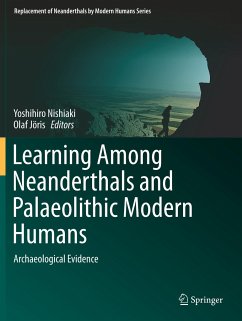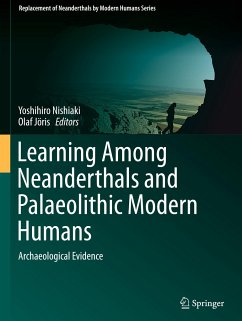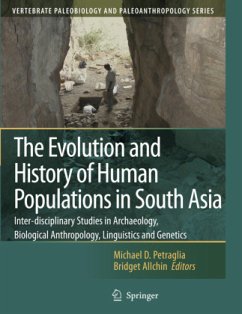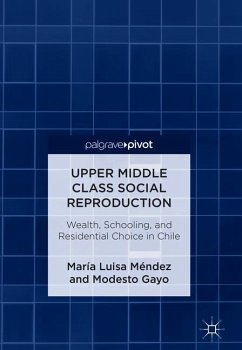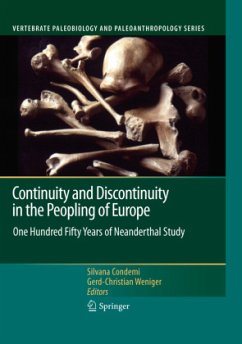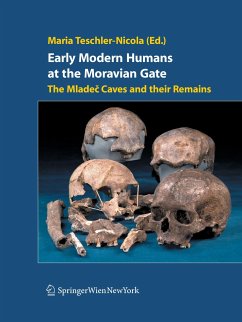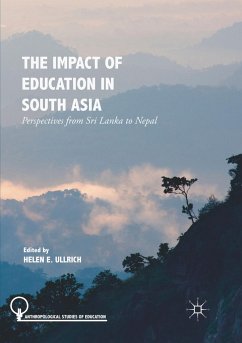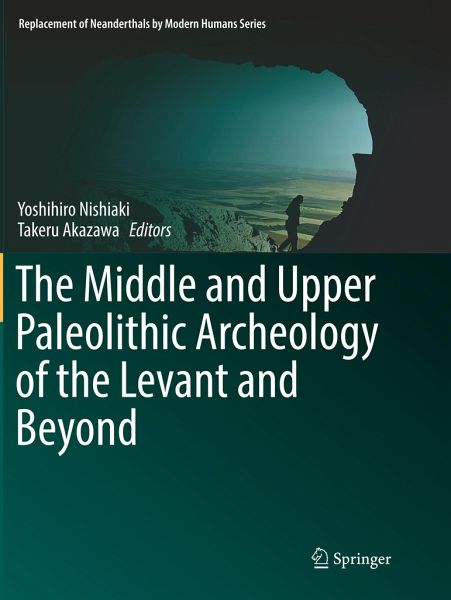
The Middle and Upper Paleolithic Archeology of the Levant and Beyond
Versandkostenfrei!
Versandfertig in 6-10 Tagen
83,99 €
inkl. MwSt.

PAYBACK Punkte
42 °P sammeln!
This volume is a compilation of results from sessions of the Second International Conference on the Replacement of Neanderthals by Modern Humans, which took place between November 30 and December 6, 2014, in Hokkaido, Japan. Similar to the first conference held in 2012 in Tokyo, the 2014 conference (RNMH2014) aimed to compile the results of the latest multidisciplinary approaches investigating the issues surrounding the replacement of Neanderthals by modern humans. The results of the sessions, supplemented by off-site contributions, center on the archeology of the Middle and Upper Paleolithic ...
This volume is a compilation of results from sessions of the Second International Conference on the Replacement of Neanderthals by Modern Humans, which took place between November 30 and December 6, 2014, in Hokkaido, Japan. Similar to the first conference held in 2012 in Tokyo, the 2014 conference (RNMH2014) aimed to compile the results of the latest multidisciplinary approaches investigating the issues surrounding the replacement of Neanderthals by modern humans. The results of the sessions, supplemented by off-site contributions, center on the archeology of the Middle and Upper Paleolithic of the Levant and beyond. The first part of this volume presents recent findings from the Levant, while the second part focuses on the neighboring regions, namely, the Caucasus, the Zagros, and South Asia. The 13 chapters in this volume highlight the distinct nature of the cultural occurrences during the Middle and Upper Paleolithic periods of the Levant, displaying a continuous development as well as a combination of lithic traditions that may have originated in different regions. This syncretism, which is an unusual occurrence in the regions discussed in this volume, reinforces the importance of the Levant as a region for interpreting the RNMH phenomenon in West Asia.



